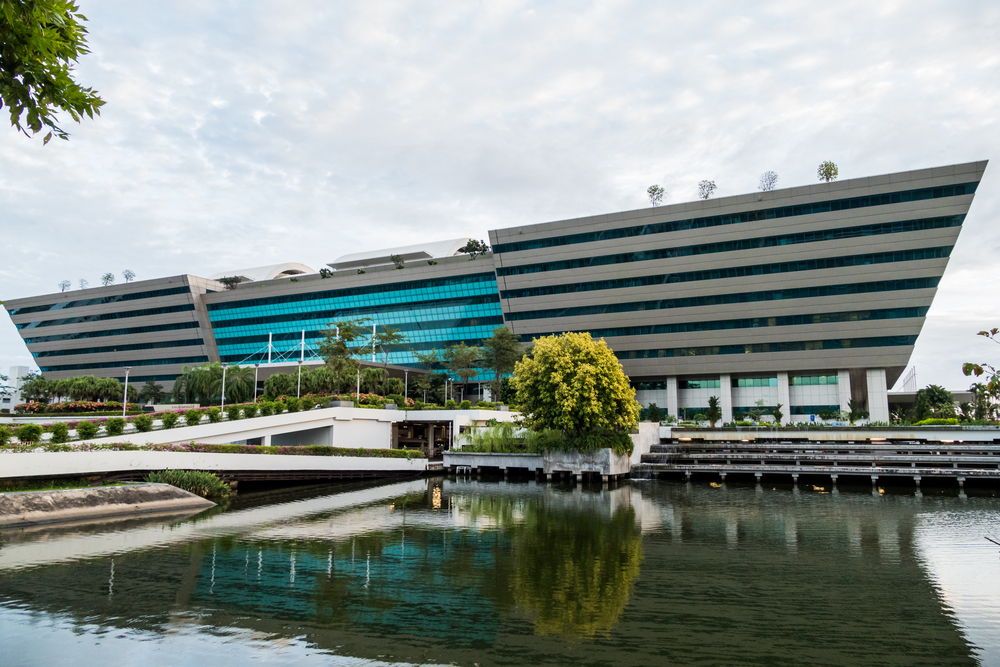Thailand revives old law to monitor expats’ whereabouts
Thailand’s recently revived TM30 immigration has certainly ruffled the feathers of expatriates, but it’s not yet causing many to fly the coop

It’s barely 8am and the queues of foreigners waiting for Bangkok’s main immigration office to open look more reminiscent of the release of a new iPhone or a ticket release for a hot concert than a typical day of visa renewals.
Business is brisker than ever, with waiting times stretching two to six hours after an old law was revived earlier last year to monitor the whereabouts of foreigners.
The TM30 order requires foreigners to notify immigration within 24 hours when they are back home from a trip abroad or to another province. While this can be done via an app, there have been many reported glitches, with users resorting to fill in their forms at the immigration complex at Chaeng Wattana on the outskirts of Bangkok.
One retired English teacher in line to renew his visa was fined THB800 (USD26) after a recent trip abroad. He was under the impression his landlord was supposed to file the report on his behalf, which is technically true. But with many landlords unavailable or unwilling to comply, it has been left to tenants to file the report and pay the fine. “I had to pay it. There wasn’t much I could do,” he says.
The TM30 order dates back to the immigration law of 1979, when Thailand was trying to control the refugee crisis sparked by the conflicts in Vietnam and Cambodia. Recent years have seen it being revived in some provinces, but it wasn’t until April when the government announced it would strictly enforce the law nationwide.
There are many condominiums and apartments available for rent and whatever happens, landlords still want foreigners to rent them
The government claims the order will aid with national security and force landlords to be more open about their business. But many newspapers and expats have taken a more cynical view, slamming it as a means of exerting tighter control on foreigners, getting rid of the ones they don’t like, and a means of making money.
In an editorial in July, the Bangkok Post reports the law will give the tourism industry a “shot in the foot” rather than a much-needed shot in the arm. With rumours spreading that landlords have expressed reluctance to carry on leasing rooms to foreigners, critics are claiming such development could potentially damage both the property and tourism markets.
Yet as the dust settles, it appears such claims hold little weight.
Risinee Sarikaputra, head researcher at Knight Frank Thailand, says that Thailand’s property sector continues to grapple with a huge oversupply of apartments and condominiums, and far from discriminating, landlords are desperate for tenants regardless of nationality. “It’s a tenant’s market, not a landlord’s market at the moment,” points out Sarikaputra. “There are many condominiums and apartments available for rent and whatever happens, landlords still want foreigners to rent them.”
Of greater concern than TM30, Sarikaputra informs, is the strong baht and China’s slow economy, which in the second quarter last year grew at its slowest pace in 27 years due to its ongoing trade war with the United States. The same obstacles impact Thailand tourism, which has been heavily dependent on Chinese patrons.

Juwai.com executive chairman Georg Chmiel says that Chinese buyer demand for property is directly linked to tourism since a high proportion buy to have a second home or holiday home. “Thailand has remained the first or second most popular destination for Chinese tourists over the past two years. After steady recent growth, Chinese tourist visits to Thailand declined by 4.73 percent in the first half of 2019 compared to the prior year,” says Chmiel.
The tourism sector is largely immune to the effects of the TM30 because hotels record the arrival of a foreign guest as standard. Only if a tourist stays at a friend’s house or an AirBnB would the host need to notify authorities, though this appears to be less strictly enforced. Where the TM30 might have an impact is on domestic travel among expats. Those looking to avoid getting tangled in government bureaucracy or risk breaking the law might say no to a weekend away.
More: Meet the man behind Thailand’s co-working empire
Rather than seeing it as a blow to the tourism industry, Samphan Panpat, honorary adviser to the Thai Hotels Association, feels it will be a boon, as visitors should feel safer knowing the government is aware of where they are. But for expats, the gripe is not so much over filling in a form or having to spend a day at immigration, it’s the sentiment that the ability to live and work in Thailand is getting harder and harder.
Since the military took power in 2014, expats are finding it harder to obtain work permits and visas and are being subjected to questioning upon re-entering the country. On top of this, there is the requirement that they report to immigration every 90 days and now the TM30.
Many expats feel they are being squeezed and pushed out of the country. Where any analysis of how TM30 might affect the economy falls short is that it doesn’t account for this growing discontent. People once keen on settling in Thailand may also be discouraged by this new, cumbersome layer to the country’s bureaucratic rigmarole.
Business chambers and associations have been right to openly criticise the order as being bad for business. In the current climate, Thailand should be doing all it can to improve its image as something of a modern liberal economy open for business—not one reverting to cold war security measures. With dire housing forecasts and a trundling Chinese economy, Thailand must realise that now is the time to open up, not shut itself off.
This article originally appeared in Issue No. 157 of PropertyGuru Property Report Magazine
Recommended
Why everyone is moving to Selangor and Johor: Malaysia’s real estate comeback
Malaysia’s upturn in fortunes is especially prevalent in secondary destinations such as Selangor and Johor
Penang’s silicon boom: How the US-China tech war is supercharging local real estate
Penang’s booming semiconductor industry has created ripples within the local real estate sector
New leader, new opportunities: How Hun Manet is shaking up Cambodia’s real estate game
Hun Manet is overseeing decent economic growth and widening access to the country’s real estate market for foreigners
Singapore embraces inclusive housing reforms amid resilient demand
The Lion City’s regulatory strength continues to exert appeal for international investors








